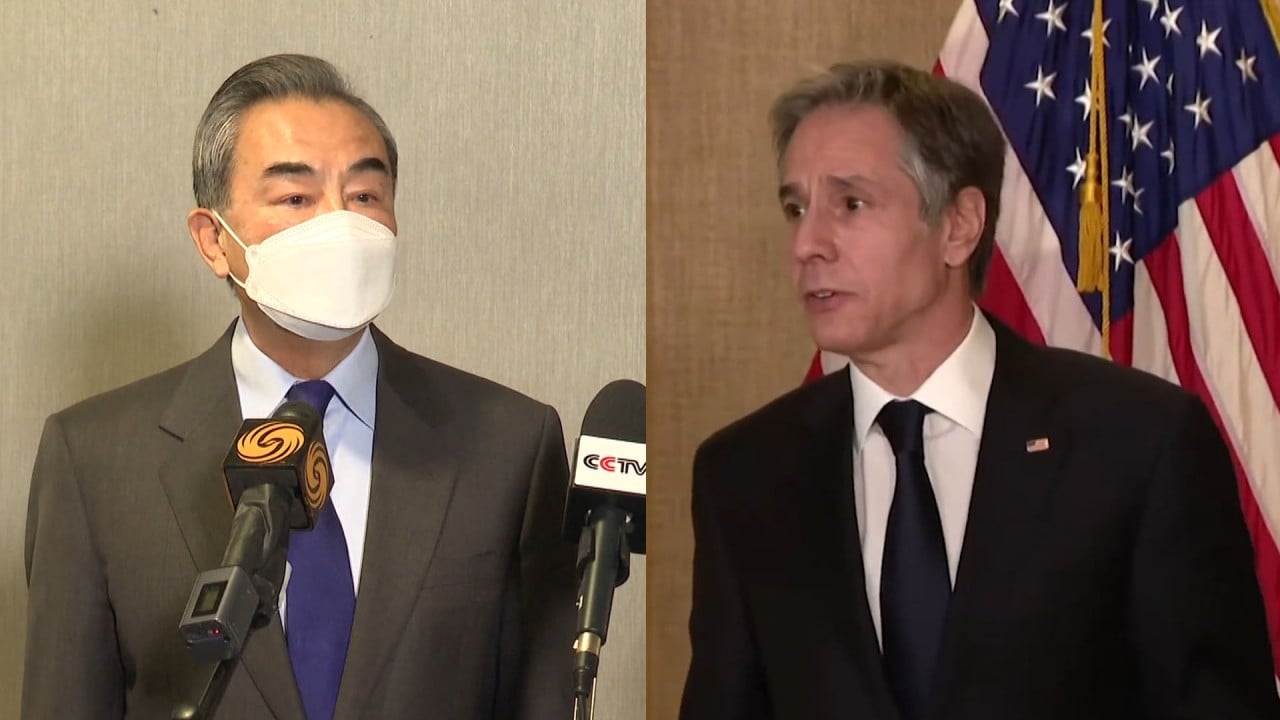
American envoy keen for Taiwan-Palau-US cooperation as China protests against official ties
- US ambassador’s trip has practical and symbolic importance, head of Washington’s de facto embassy says
- Trip shows Biden will not be as conservative in dealing with Beijing as some thought, observers say
On Tuesday, Hennessey-Niland said he was confident that ties between Taiwan and Palau would strengthen further, and he looked forward to discussing other opportunities for cooperation between Taiwan, Palau and the United States.
“As the US ambassador to Palau there has been no higher priority than working with our partners and friends, in Palau and across the Pacific, to help keep people safe and to give people hope after a difficult 12 months due to the [Covid-19] virus,” he said, after talks with Taiwanese Foreign Minister Joseph Wu and Brent Christensen, director of the American Institute in Taiwan, the US de facto embassy in Taipei.
Christensen said Hennessey-Niland’s trip was significant in practical and symbolic terms.
“Practically speaking, this travel [bubble] and the new policy that made it possible, is a tangible sign of progress and cause for optimism in the fight against Covid-19,” he said.
“This visit is also emblematic of the closeness and cooperation that has benefited the United States, Taiwan, and Palau in the Covid fight and more broadly.”
Christensen said the US, Taiwan and Palau had worked together on other shared threats, including climate change and marine pollution, and efforts to advance shared values, including preservation of indigenous cultures and fostering sustainable and inclusive economic growth.
“Moments like this reaffirm the value of the long-standing friendship that binds the United States, Palau, and Taiwan,” he said.
A day earlier, the Chinese foreign ministry said it “resolutely opposes any form of official contacts between US and Taiwanese officials”, adding that any such contact would hurt US-China ties and affect stability in the Taiwan Strait.
Beijing considers Taiwan a breakaway province that must be reunited with the mainland – by force if necessary. Palau is one of 15 countries that has diplomatic relations with Taipei.
China gives coastguards power to fire on foreign ships in disputed waters
Lo Chih-cheng, a legislator of the ruling Democratic Progressive Party, said the US-Taiwan agreement and Hennessey-Niland’s visit indicated the Biden administration was not as conservative in dealing with Beijing as some had thought.
Wang Kao-cheng, a professor of international relations and strategic studies at Tamkang University in Taipei, also said the visit suggested the White House supported promoting official contacts with Taiwan.
“This also helps promote Taiwan’s international visibility,” Wang said.
Beijing has strongly opposed official US contacts with Taiwan on the grounds that Washington switched diplomatic recognition to Beijing from Taipei in 1979.
A day after the US signed the coastguard agreement with Taiwan, Beijing sent 20 warplanes to Taiwan’s southwest air identification zone to ramp up pressure on the island. On Monday, Beijing also sent 10 warplanes into Taiwan’s AIDZ in protest against the US ambassador’s visit.


